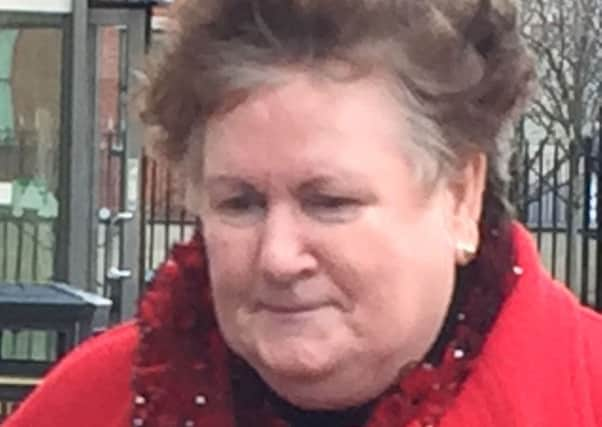State '˜can't write blank cheque for legacy inquests'


Counsel for the Department of Justice (DoJ) argued that human rights legislation should not require funding all outstanding tribunals if the costs meant everything else was “brought to a halt”.
Peter Coll QC advanced an extreme, hypothetical scenario in countering a challenge brought by the widow of an innocent civilian shot dead along with eight IRA men.
Advertisement
Hide AdAdvertisement
Hide AdHe argued: “Hospitals would have to be closed, schools closed, lights turned off – all to fund legacy inquests at the exclusion of everything else.
“That simply cannot be what the European court would expect.”
Brigid Hughes is seeking to judicially review the governments in London and Belfast for failing to release the funds necessary to hold a series of tribunals into killings which occurred during the conflict.
Her husband, Anthony, died after being unwittingly caught up in the SAS ambush of an IRA unit at Loughgall, Co Armagh in May 1987.
Advertisement
Hide AdAdvertisement
Hide AdAlthough the Stormont House Agreement includes a £150 million package to deal with all legacy issues, the government has said financial resources will not be released until political consensus is reached on dealing with the past.
Proceedings have been issued against the secretary of state, the Stormont Executive and former first minister Arlene Foster personally due to her alleged responsibility for the logjam.
It is claimed that in 2016 she unlawfully blocked a paper on bidding for inquest funding before it could be discussed by cabinet colleagues.
Those proposals, drawn up by the DoJ, came after Northern Ireland’s Lord Chief Justice, Sir Declan Morgan, put up a plan to have a backlog of cases dealt with within five years.
Advertisement
Hide AdAdvertisement
Hide AdMore than 50 Troubles-related inquests remain outstanding, with another 72 cases said to be on the attorney general’s desk for consideration.
Lawyers for Mrs Hughes insist Article 2 of the European Convention on Human Rights imposes a legal obligation to ensure the inquests are held.
However, the court heard the DoJ paper only covered 16 of the legacy cases, at a cost of more than £16m.
Northern Ireland Office officials were said to be concerned that it lacked a proper business case, reform proposals and could have drained the £150m government package.
Advertisement
Hide AdAdvertisement
Hide AdPutting forward the department’s case, Mr Coll insisted responsibility for managing the inquests lies with the coroner.
He also told the judge, Sir Peter Girvan, that Parliament never intended to put bodies responsible for funding in a “financial straitjacket” with an absolute duty to provide whatever money was needed.
Instead, he submitted, requirements must be balanced against demands from elsewhere.
Mr Coll said: “The argument put forward by the applicant is that if Article 2 is engaged it’s just a question of a blank cheque.
Advertisement
Hide AdAdvertisement
Hide Ad“The world doesn’t work like that and the law doesn’t work like that in domestic terms, nor does it work like that in Strasbourg. Things are more nuanced.”
The barrister contended that just because human rights law is involved the State must provide funding at the expense of everything else.
“It cannot simply be right that Strasbourg would require, to use a facetious example where there was so much money required for this issue, that all other functions in Northern Ireland would have to be brought to a halt,” he added.
Later, responding to Sir Paul’s assessment that the funding proposals were vague, Barry Macdonald QC, for Mrs Hughes, stressed: “There was sufficient detail to allow the minister of justice to work up a paper put forward for consideration.
“The important point is that it wasn’t given any consideration at all, it was blocked. That’s incompatible with convention rights.”
The case continues.